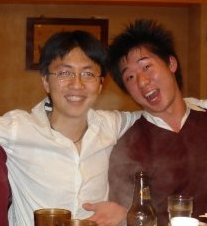The following is the second of 4 guest posts on China by Lei Zhao, who continues to contribute to the Monsoon Diaries adventures time and time again.
Lei Zhao and I have been close friends since 7th grade of middle school. Saying that we’ve been through a lot together is an understatement. And he’s probably one of the most gifted artists and smartest human beings I have ever known.
Here is his story.
Ghost Festival is a major holiday celebrated in Buddhist and Chinese communities around the world. This is festival that occurs each year from the 1st to 15th day of the 7th lunar month. It signifies a time when the “gates of hell” open and the spirits of the dead and of people’s ancestors come up into the world of the living. During this time, people are especially superstitious and cautious when going about daily business.
On the first day of the festival, people will set off firecrackers to welcome their ancestral spirits back home. Offerings of wine and tea are poured outside of one’s home as a gesture of generosity and welcome to the spirits. Ritual offerings must also be made to the ancestral altar before each meal, along with a greeting made to a few generations of a person’s deceased family.
The last day of the festival is the most intriguing, as it is the time when everyone bids farewell to their ancestors’ spirits with a final round of elaborate offerings. On this day, people generally do not venture out of the home, and do not take in visitors, as it is considered a faux pas in the eyes of the ancestors to disregard the solemnity of the occasion.
While the festival is on, you can always find some section of a market district that is selling paper goods of various kinds: shoes, clothes, little cars, even model houses and TVs, along with copious amounts of hell money and joss paper. The idea is for each family to send off their ancestors’ spirits with plenty of offerings such that they are not lacking in the afterlife for the next year. We spent many hours assembling these packets upon which the name of an ancestor to be remembered is written, along with the person who is sending the offering.
According to some historians, the Ghost Festival has its roots in the Buddhist faith. An arhat (enlightened being) whose mother had fallen into a lower birth upon reincarnation asked the Buddha what he could do to rectify the situation. The Buddha replied that he should burn ritual offerings in order to garner merit for her soul, with the eventual goal that she would achieve a better birth in the next life.
From my understanding, Ghost Festival isn’t as big a deal in Mainland China as it is with the Overseas Chinese community, in particular those who are in Southeast Asia. Despite this fact, we saw plenty of families out burning their offerings, and walking to the river to dump the ashes. This was my first time observing the tradition, and it was definitely an experience that will stay with me for a long time to come.








Recent Comments